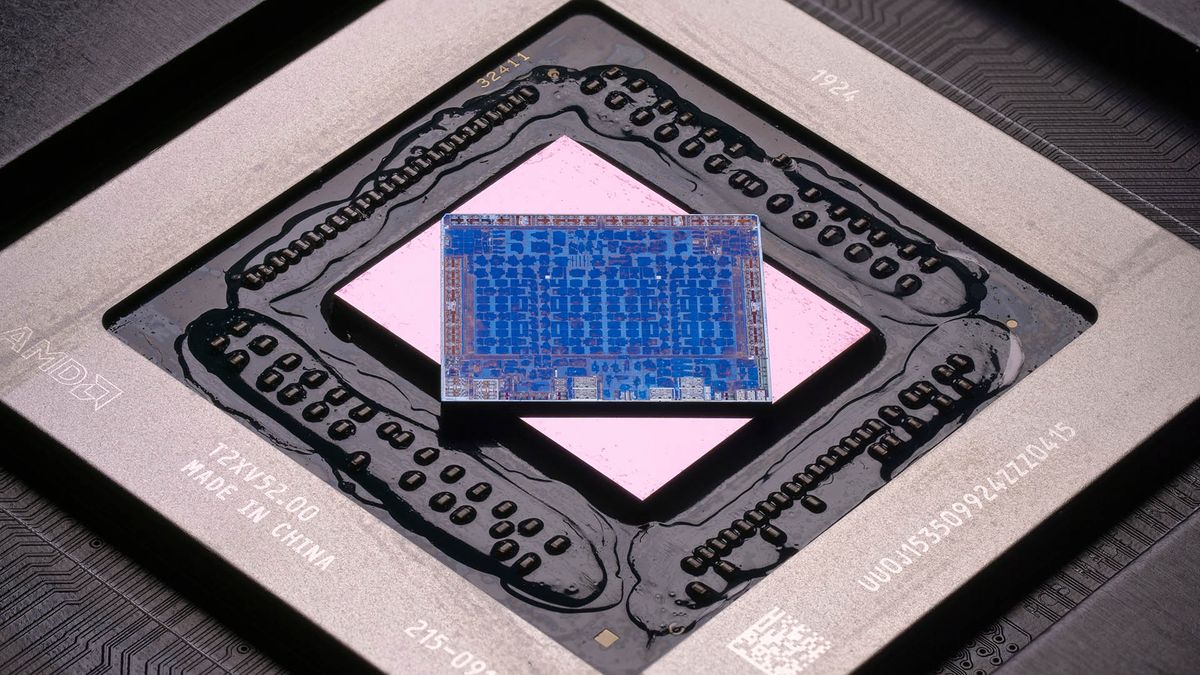JareBear: Remastered
Banned

The Xbox Series X and PS5 features coming to a gaming PC near you
Even your PC will benefit from the next generation of game console technology.
There's a lot to be excited about with the next-gen consoles, and not the least bit is how they will bolster our gaming PCs.
Both the Xbox Series X and PlayStation 5 operate with AMD-designed technology at their gooey centres—AMD Zen 2 and RDNA 2 chips to be precise....their counterparts are, or will soon be, available within the PC ecosystem, too. The latest Ryzen 3000 processors left their mark on the best CPUs for gaming list, thanks in large part to the AMD Zen 2 architecture. And as for RDNA 2.0 graphics cards, those will ship in a form factor favoured by gaming PCs roughly around the same time as the next-gen consoles launch
What separates console from PC, and console from console, are the many proprietary or pseudo-proprietary features being integrated at the nanometre level. Sony is rolling out its own 3D audio algorithms, uber-high bandwidth I/O, and SSD controller with the PS5. While Microsoft is bringing its 'Xbox Velocity Architecture' to bear with its latest console, which will also be fitted with all the advancements introduced within the flashy DirectX 12 Ultimate API.
Where things get interesting for us PC folk is when these many advancements intersect our not-so-humble hobby, and many of the features within both Microsoft and Sony's secret sauce are not as proprietary as they'd like to have us believe.
Article then goes on to detail next-gen advancements in:
Graphics: Ray Tracing, UE5's Nanite and Lumen technology
Storage:
What's been crucially pivotal to both the Playstation 5 and Xbox Series X has been the inclusion of an NVMe drive, which have already found a home in the latest gaming PCs.
For the Xbox Series X, Microsoft is offering the new Xbox Velocity Architecture to help its console along. It's actually composite of a four key technologies—DirectStorage, a custom NVMe SSD, Sampler Feedback Streaming, and a dedicated decompression block—of which at least half are also coming to gaming PCs—in fact, a few are already in the works right now.
On the flip side, the PlayStation 5 can't operate DX12 or any part of Microsoft's API, for obvious reasons. Instead we'll find the similarities here lie within the custom system-on-chip that AMD produced with Sony for the PlayStation. You see, while both the Xbox and PlayStation both operate similar RDNA 2 graphics silicon, they are configured very differently.
Sony's custom chip integrates a custom I/O complex to once again deliver unprecedented console bandwidth. It's including a hardware decompression chip, much like the Series X, along with a dedicated DMA controller, two I/O co-processors, coherency engines, and those proprietary GPU cache scrubbers I spoke about earlier. Perhaps the biggest difference between the two consoles, and our gaming PCs, is that Sony has designed its very own flash controller for its onboard SSD.
Audio:
Gaming PCs have long been capable of 3D and spatial audio, such as HRTF processing, and it's often enabled on a per game level. That's something most often offloaded to the CPU
The Xbox Series X features a dedicated audio block intended to process sound in fine detail and with more complex algorithms, under the Project Acoustics banner. It will also feature plug-in support for Unity and the Unreal engine.
What's potentially of interest to PC gamers, with the release of the PlayStation 5, is the inclusion of a new 3D audio engine built out of a repurposed GPU Compute Unit (CU).
Sony aims to deliver spatial and HRTF processing without burdening the CPU anymore than it should.
Lot more in the article, getting into specifics of the graphics technologies and SSD techs
